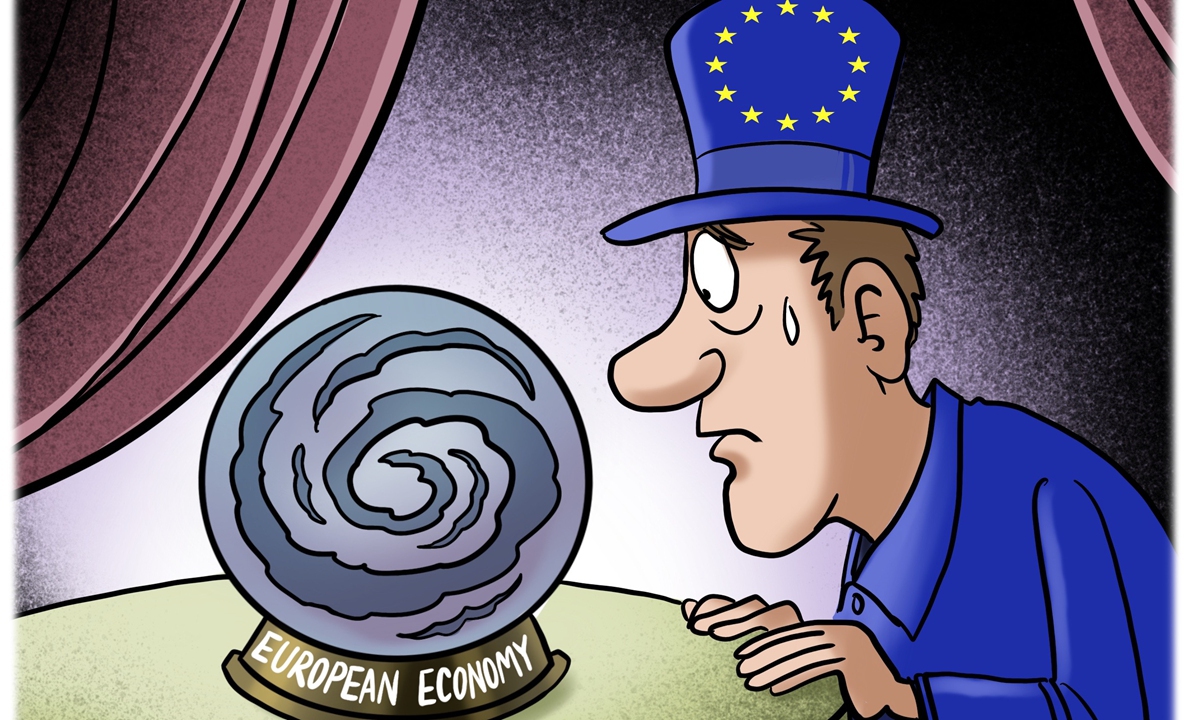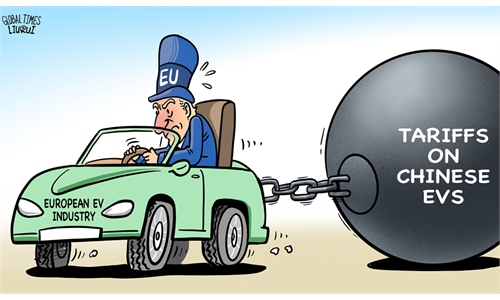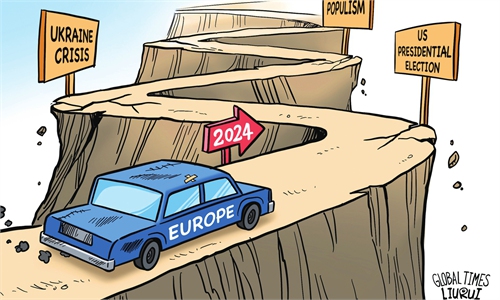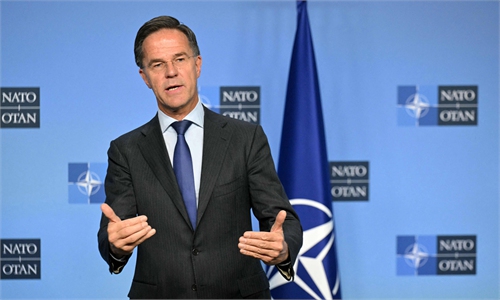
Illustration: Liu Rui/GT
It is said that Europe will experience an unusually warm winter this year, which comes as good news to the public who are struggling with higher energy prices and increasing heating costs. However, the prospect of a warm winter is contrasted by political changes across the Atlantic.
Based on the indelible memories of president-elect Donald Trump's first term and a series of statements from his team, such as warning that Europe will pay a price for a lack of American imports, Europe sees the Ukraine crisis, NATO's future, and trade disputes as key areas where "transatlantic relations" will face significant challenges once again.
In contrast to the increasing dependence on the US for security due to the Ukraine crisis, Europe's economic and market reliance on the US is even greater and harder to shake off. Under the US' soft and hard tactics, Europe's recent "de-risking and reducing dependence" measures toward China have further intensified its economic reliance on the US.
The US and Europe now account for more than $1.3 trillion in bilateral trade annually, and are one of each other's largest trading partners and investment partners. In addition, after implementing energy sanctions on Russia, Europe shifted its energy dependence from Russia to the US. The EU now imports over 50 percent of LNG from the US, which is becoming a lifeline for Europe's economy.
As European media have feared, many European businesses dread a wave of promised tariffs that could lead to a trade war after the next US administration takes office. The EU and the US already have a history of trade conflict dating back to 2018. On June 1, 2018, US tariffs entered into force for steel and aluminum imports from the EU. The EU later began charging import duties of 25 percent on a range of US products, in response to US tariffs.
However, compared to the potential tariff measures that could be implemented during next US administration, the previous dispute over steel and aluminum tariffs seems like a small skirmish. According to Politico, the president-elect Trump has been talking about imposing up to a 20 percent across-the-border tariff on all $3 trillion worth of US imports, hitting about $575 billion of cars, pharmaceutical products, machinery and a long list of other products from the EU. This might further darken the prospects for Europe's economic recovery.
Some insightful figures in Europe have already sounded the alarm, loudly calling for Europe to abandon its head-in-sand, status-quo approach when confronted with US coercion, and to embark on a genuine economic reform.
This reform should be about moving away from "short-sighted cleverness," which assumes that increasing economic dependence on the US could lead to some concessions from Washington or favorable treatment, and instead focus on "broad-minded wisdom" - deeply integrating the single market, improving economic efficiency and enhancing resilience.
Practical proposals, such as creating a fiscal union, issuing common debt or integrating industrial systems, are already on the table for European leaders. However, these proposals require time to implement and financial support, and Europe is currently lacking both of these crucial resources. Earlier this month, European Commission President Ursula von der Leyen stated that the EU could consider replacing Russian LNG imports with those from the US. "We still get a lot of LNG from Russia and why not replace it by American LNG," said von der Leyen.
This can be seen as some EU politicians still hoping to leverage trade benefits to secure US "leniency." It can also be understood as a desperate strategy to engage the next US administration when Europe finds itself without good solutions. Of course, it is more likely that, facing the upcoming "Washington storm," Europe is preparing to surrender with a sense of panic.
When describing the necessity of its "de-risking" policy, the EU once summarized the main risks it faces as energy dependence on Russia, market dependence on China and security dependence on the US, implying that deep economic reliance on the US is seen as a benefit rather than a threat, and its trade and investment relations with China and the US could be recalculated.
Although the EU is one of US' largest trade and investment partners, if Brussels expects fair and reciprocal treatment, where benefits are shared equally, from Washington, it is unrealistic. If the EU continues to direct its economic "de-risking" efforts at China and places more of its bets on US "sympathy," then the next US administration will undoubtedly view "little Europe" as just another target for its prejudices, stubbornness, and wishful thinking, forcing Europe to pay a hefty price for its mistakes.
The author is a professor at the Academy of Regional and Global Governance at Beijing Foreign Studies University. opinion@globaltimes.com.cn



